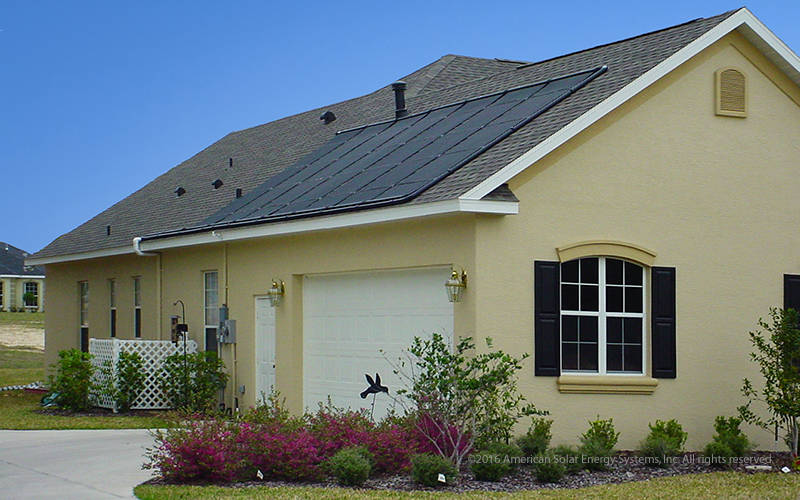Pool Heating
Get the Most From Your Pool
Did you know that with either a solar or heat pump pool heater, you can extend your pool-time well into the spring and fall seasons?
Solar Pool Heater
Solar pool heating systems operate by pumping pool water through solar panels, which absorb radiant heat from the sun and transfer it to the water in the panels, after which it is circulated back to your pool. With a solar pool heater, your family can experience 7 to 9 months of comfortable swimming rather than the typical 3 to 4 months in an unheated pool.


Heat Pump Pool Heater
Would you like to maintain a consistent pool temperature regardless of weather conditions? Electric heat pumps operate by extracting heat from the surrounding air and transferring it to your pool. Thanks to today’s advanced technology, the annual operating cost to heat the average pool to 85°F from April to October is approximately $350. Either on its own or combined with a solar pool system, a heat pump is an excellent option.
